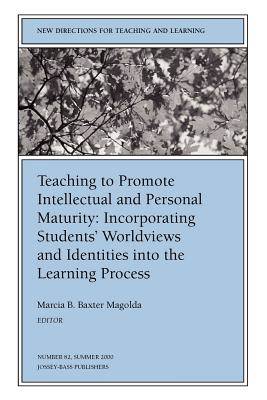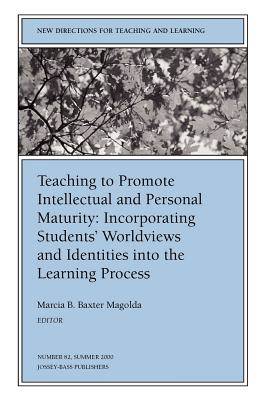
- Retrait gratuit dans votre magasin Club
- 7.000.000 titres dans notre catalogue
- Payer en toute sécurité
- Toujours un magasin près de chez vous
- Retrait gratuit dans votre magasin Club
- 7.000.000 titres dans notre catalogue
- Payer en toute sécurité
- Toujours un magasin près de chez vous
Teaching to Promote Intellectual and Personal Maturity Incorporating Students' Worldviews and Identities Into the Learning Process
New Directions for
Marcia B Baxter Magolda, Tl
30,95 €
+ 61 points
Description
Revealing that it is not what students think, but rather how theythink that is important to the learning process, the contributorsto this issue explore the full-range of cognitive and emotionaldimensions that influence how individuals learn--and they describeteaching practices for building on these to help students developintellectually and personally. They examine how students' uniqueunderstanding of their individual experience, themselves, and theways knowledge is constructed can mediate learning. They look atthe influence of gender, race, ethnicity, and sexual orientation inshaping the learning process and examine how to create a culturallyresponsive learning environment for both students and faculty. Theissue also explores the role of service learning in developing astrong sense of the caring self, examines the opportunities andchallenges of expressing cultural identity in the learningcommunity, and offers various strategies for linking learning goalsto students' views of knowledge. This is the 82nd volume in the Jossey-Bass series NewDirections for Teaching and Learning
Spécifications
Parties prenantes
- Auteur(s) :
- Editeur:
Contenu
- Nombre de pages :
- 120
- Langue:
- Anglais
- Collection :
- Tome:
- n° 55
Caractéristiques
- EAN:
- 9780787954468
- Date de parution :
- 18-07-00
- Format:
- Livre broché
- Format numérique:
- Trade paperback (VS)
- Dimensions :
- 148 mm x 230 mm
- Poids :
- 163 g







